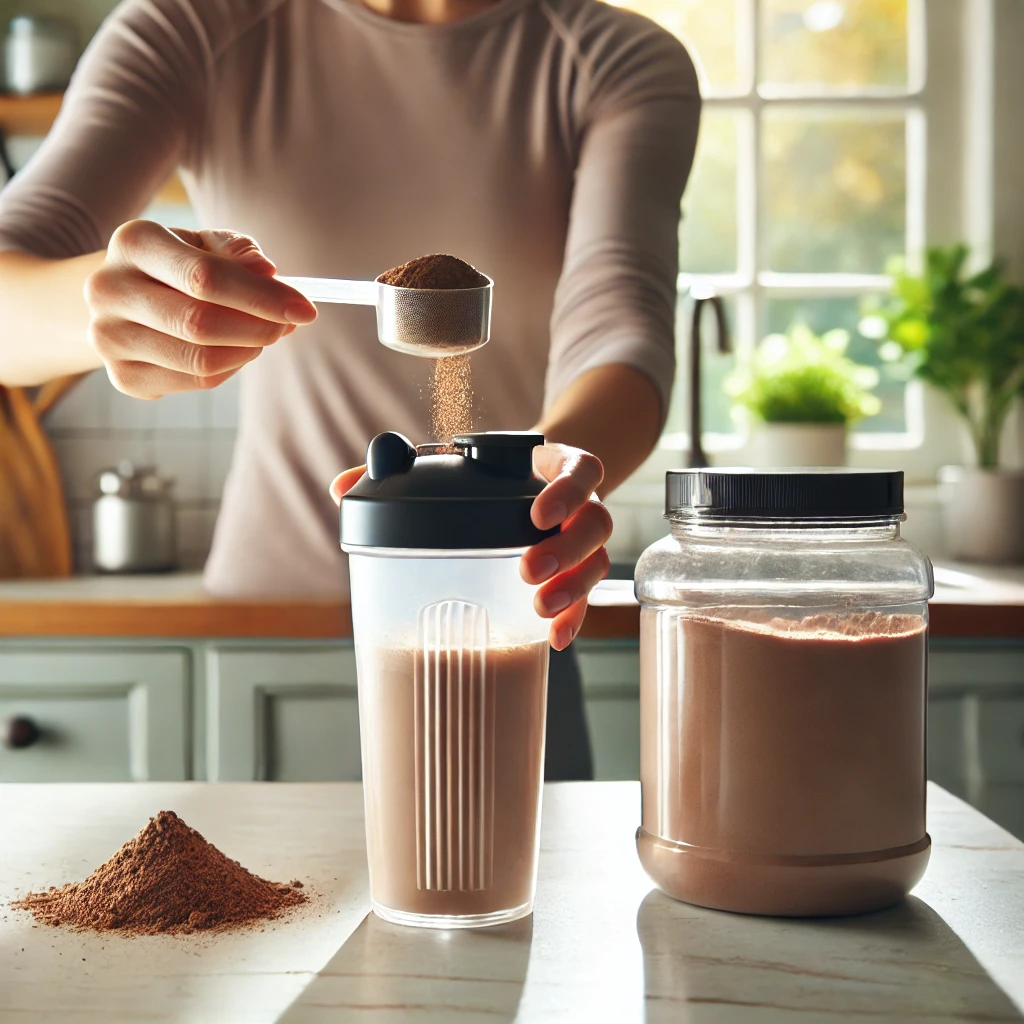The 5 Best Protein Powders, According to a Dietitian
Published: June 18, 2024
Key Takeaways:
- Protein is one of the three essential macronutrients and should account for 10%–35% of daily calorie intake.
- Protein powders supplement additional protein to diets, catering to specific nutrition needs.
- Since protein powders are not regulated like food or medications, opt for products that have third-party testing for safety.
- Protein powders can come from dairy, eggs, or plant-based sources.
- Logging your macronutrient intake can help track protein consumption effectively.
Choosing the Right Protein Powder: Where to Start
With numerous options on store shelves, picking a protein powder that works for you can be overwhelming. Start by answering these basic questions:
- Flavor Preference: Choose a flavor you enjoy to make daily consumption enjoyable.
- Dietary Restrictions: Ensure the product meets your specific needs, such as non-GMO, vegan, or kosher requirements.
- Sugar Content: For those monitoring sugar intake, check how much sugar is added per serving.
- Protein Content: Make sure the protein per serving meets your nutritional goals.
- Safety Verification: Look for products with third-party testing to ensure purity and accurate labeling.
5 Types of Protein Powders You Should Know
1. Whey Protein Powders
- How It’s Made: Whey protein is derived from the liquid left after cheese-making, refined to reduce lactose and fat.
- Benefits: A complete protein containing all essential amino acids, including BCAAs, ideal for muscle growth and recovery.
- Who It’s Best For: Suitable for most people but not compatible with vegan diets or those with dairy intolerance.
- When to Drink It: Whey is quickly digestible, making it an excellent post-workout choice.
Top Picks:
- Best Overall: Ascent Native Whey (Chocolate)
- Other Options: Naked Grass Fed Whey (Unflavored), Beam Vanilla Soft Serve Whey Protein
2. Casein Protein Powders
- How It’s Made: Extracted from milk and used for its thickening properties.
- Benefits: High satiety value, making it ideal for reducing snacking.
- Who It’s Best For: Great for dairy-tolerant individuals seeking slow-digesting protein.
- When to Drink It: Before bed or when a prolonged release of protein is needed.
Top Picks:
- Best Overall: Gold Standard 100% Casein (Chocolate Peanut Butter)
- Other Options: Muscle Milk Sleeping Giant Protein (Hot Chocolate), Naked Micellar Casein (Unflavored)
3. Plant-Based Protein Powders
- How It’s Made: Sourced from soy, rice, hemp, and pea proteins.
- Benefits: Higher fiber and antioxidants compared to animal-based proteins; eco-friendly and lactose-free.
- Who It’s Best For: Ideal for vegans or anyone avoiding animal products.
- When to Drink It: Suitable for post-workout recovery or as an added protein boost to meals.
Top Picks:
- Best Overall: Vega (Creamy Vanilla)
- Other Options: KOS Organic Plant Protein (Salted Caramel Coffee), Anthony’s Premium Pea Protein Powder (Unflavored)
4. Egg-Based Protein Powders
- How It’s Made: Dehydrated and refined egg whites.
- Benefits: High digestibility, essential amino acids, and lasting satiety.
- Who It’s Best For: Those without egg allergies who prefer non-dairy proteins.
- When to Drink It: Perfect for morning smoothies or protein-packed breakfast meals.
Top Picks:
- Best Overall: Naked Egg (Unflavored)
- Other Options: MRM Egg White Protein (Vanilla), Source Nutrition Egg White Protein Powder (Chocolate)
5. Clear Protein Isolate Powders
- How It’s Made: A refined form of whey protein isolate, offering a lighter, more water-soluble option.
- Benefits: Lighter texture; often described as less heavy than traditional whey.
- Who It’s Best For: Those seeking a lighter whey protein drink.
- When to Drink It: Mix with water for a refreshing sports-drink-like experience after workouts.
Top Picks:
- Best Overall: My Protein Clear Whey Isolate
- Other Options: Seeq Clear Protein (Mango Pineapple), MuscleTech Clear Whey Isolate (Lemon Berry Blizzard)
Frequently Asked Questions
1. Is tracking protein intake important?
Yes, it ensures you’re consuming a balanced amount of macronutrients based on your health goals. Use tools like MyFitnessPal to easily track macros.
2. Can I rely on protein powder to hit all my protein needs?
While protein powders can be a convenient source, they shouldn’t replace whole food protein sources, such as lean meats, eggs, beans, and dairy.
Final Thoughts:
Choose a protein powder that suits your dietary needs and lifestyle. Opt for third-party tested products to ensure safety and efficacy. Remember, protein powders are supplements and should complement a varied, balanced diet.
Optimize your protein intake and overall health goals with Sly Academy’s top protein powder picks!







